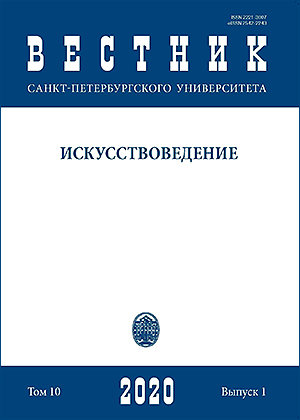The Music Salon in Russia in the First Half of the 19th Century
DOI:
https://doi.org/10.21638/spbu15.2020.102Аннотация
The article deals with the issues of music functioning in the culture of Russian salons of the first half of the 19th century. The salon is regarded as a significant socio-cultural institution structured in accordance with chronology and time, the composition of guests and modes of communication, concert and theatrical practices, and the administrative and artistic strategy mapped out by salon hosts. The paper analyses the social composition of salons, which allows for two types of salons to be distinguished: the aristocratic (hosted by Z. A. Volkonskaia, Mikhail Yu. Vielgorskii, and A. F. L’vov) and the artistic (founded by A. S. Dargomyzhskii). The author identifies the principles that comprise the salon space, irrespective of its type, and the main components of which are concert-theatrical and game-entertainment modes of communication. The primary focus is given to the phenomenon of the salon concert, which is analyzed in detail. The article touches upon the issue of the stylistic specifics of salons from sentimental to pre-romantic and romantic with an emphasis on the order of priorities set for the music to be performed, thereby mythologizing and de-mythologizing the creator composer — ‘the artist.’ A special section of the article is devoted to communicative functions of music in the salon culture.
Ключевые слова:
salon, socio-cultural institution, Russia, 19th century, salon concert, musical genres, music as communication
Скачивания
Библиографические ссылки
Sources
Загрузки
Опубликован
Как цитировать
Выпуск
Раздел
Лицензия
Статьи журнала «Вестник Санкт-Петербургского университета. Искусствоведение» находятся в открытом доступе и распространяются в соответствии с условиями Лицензионного Договора с Санкт-Петербургским государственным университетом, который бесплатно предоставляет авторам неограниченное распространение и самостоятельное архивирование.






